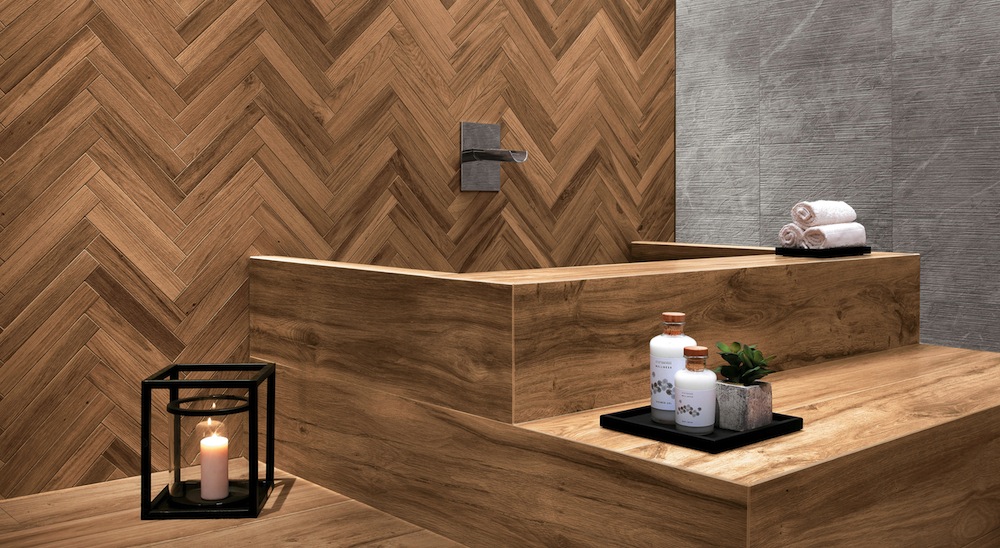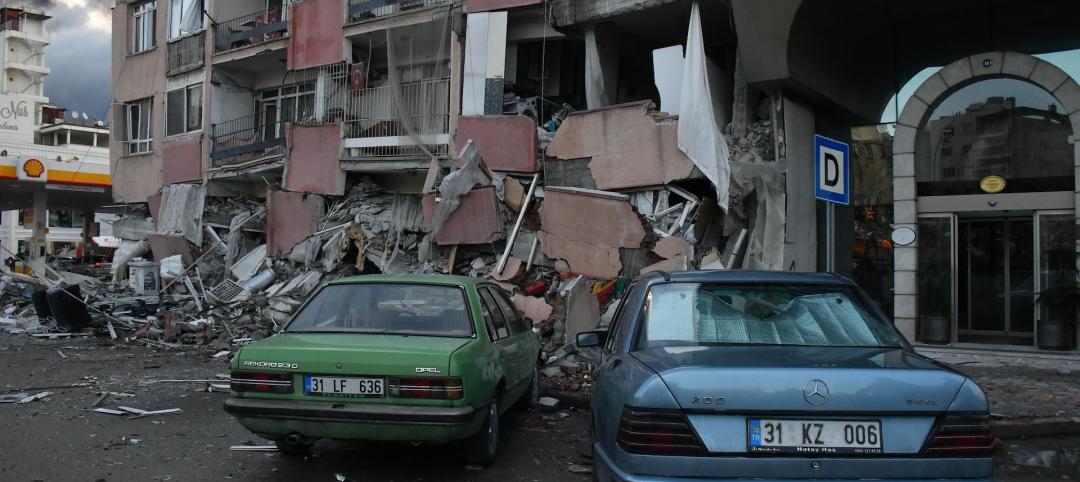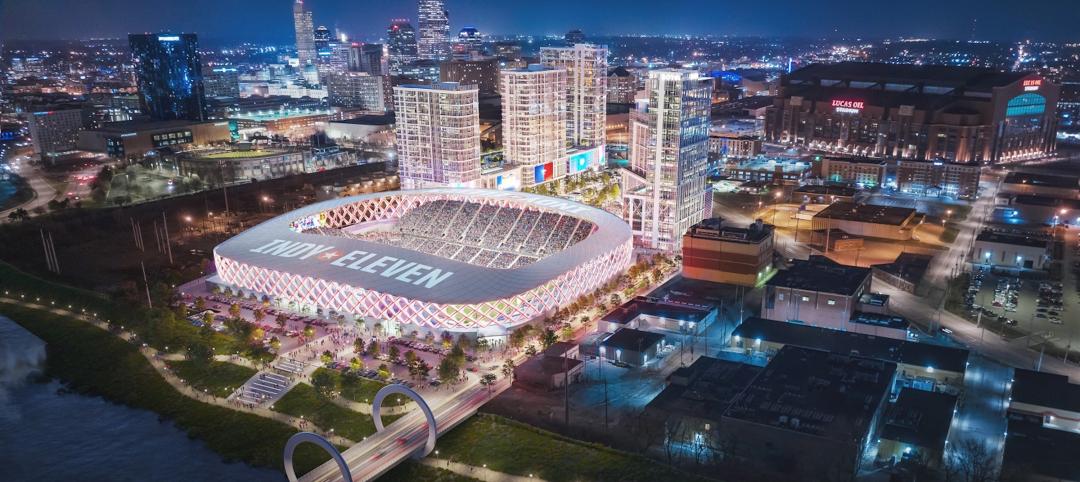If you're wondering what new Italian tile products will be popping up in 2016, here's a roundup of the 10 most popular trends we saw at Cersaie, an exhibition of ceramic tile and bathroom furnishings held in Bologna, Italy from September 28 - October 2.
1. FRAGMENTS
Playing with the idea of modularity, Italian ceramic companies are designing fragmented patterns on square and rectangular tiles to produce large compositions. By mixing and matching geometric shapes, the tiles pop with vivid, kaleidoscopic effect.
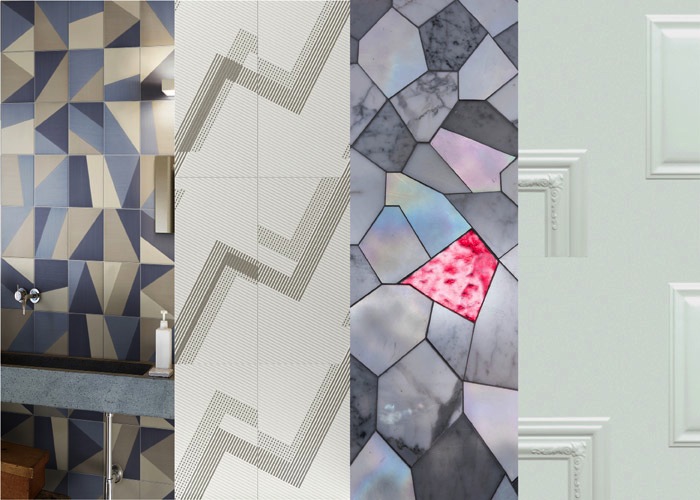
2. HIT THE BRICKS
Each season, a shape naturally emerges as a tile industry favorite. Last year was the hexagon; this year is all about brick. From micro to macro, polished to rustic, and designs ranging from interpretations of old brick walls and brick with mortar spills to painted brick and marble and wood designs in a brick format.
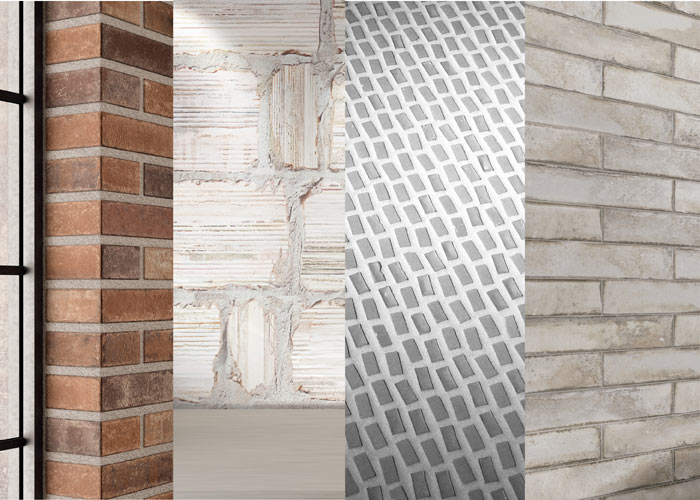
3. CHEVRON CHIC
Drawing inspiration from an age-old pattern, designers dress up floors and walls with these porcelains. From rustic and painted wood looks to resin, brick and stone, Italian companies are producing chevron and herringbone tiles across all scales to create patterns that are easy to install.
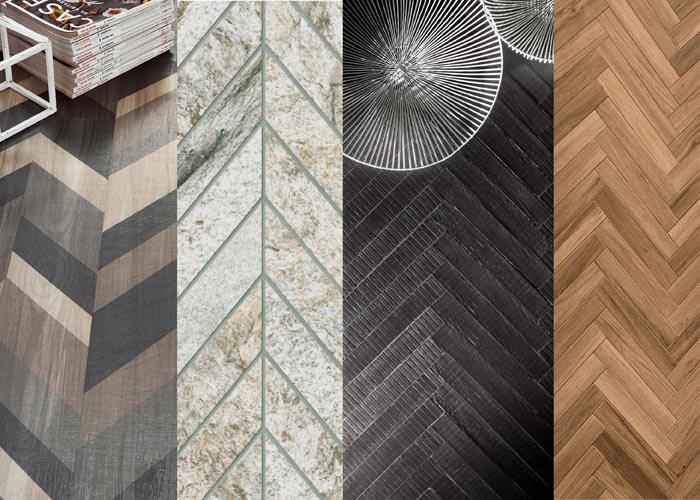
4. ALONG THE RIGHT LINES
This year we saw endless variations on the most basic element of design: the line. Thick and thin, vertical and horizontal, straight and intersecting, flat and three dimensional, linear designs are definitely in vogue with the ability to add depth, movement or focus to a room.
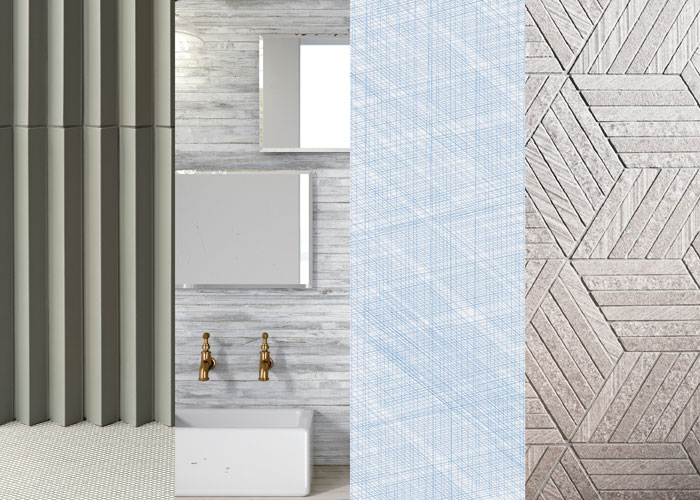
5. OBJET D'ART
One trend that's been embraced by several Italian companies is the transformation of tile into objet d'art. Street art and pop art have influenced numerous styles of tiles.
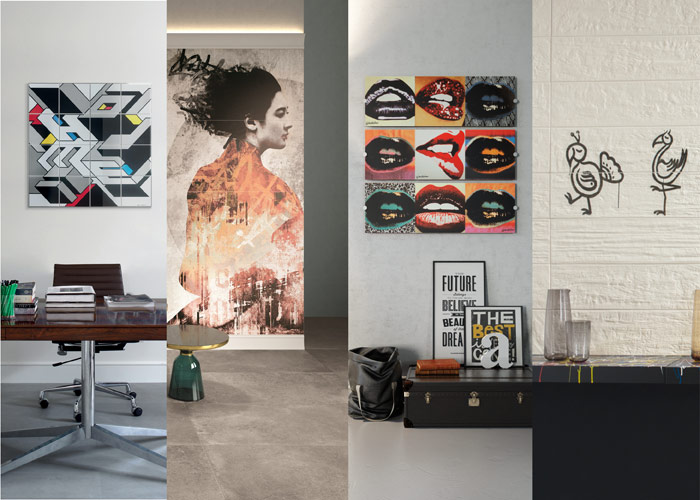
6. SOFT SPOT
There was warmth to the tile introductions this year, lending a softness to the hard surface. From designs with distressed and tactile effects (sandblasted marble, stripped wood and fabric) to warm shades, watercolor and velvety textures, it was a welcome reprieve from the minimal aesthetic of recent years.
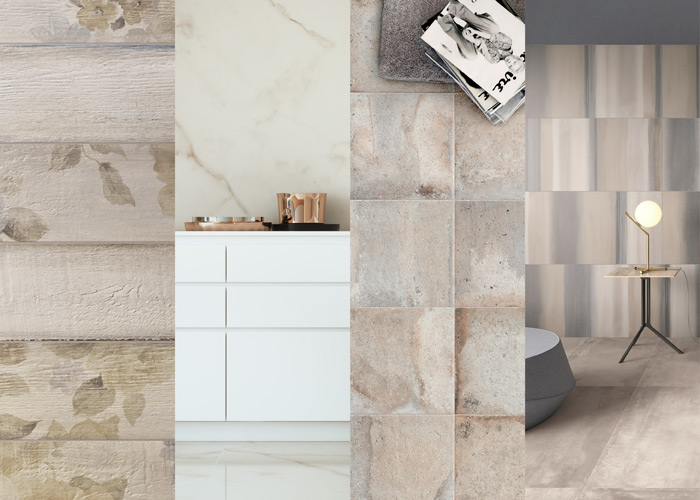
7. GREYSCALE
Despite the color's recent rise in popular culture, grey has always been a modern designer's best friend. And this year an entire spectrum can be found in the latest Italian tile introductions, from cooler slate tones to the portmanteau of grey and beige. With the addition of texture, chromatic variation and overlaid patterns, these tiles prove that you don't need color to make a statement.
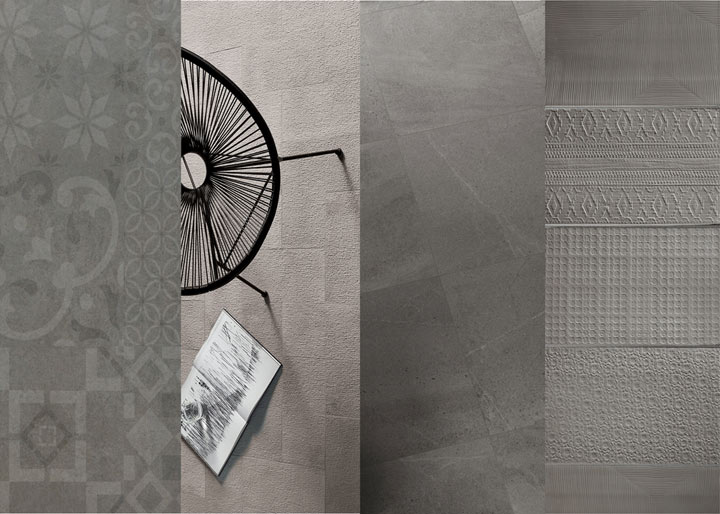
8. 3D WALL
With continuously evolving technologies, Italian companies are able to create ceramic tiles with three dimensional folds, wavy ridges, raised geometry and asymmetrical profiles. Fitting these tiles together creates a three dimensional wall with a seamless sculpted surface that draws the eye.
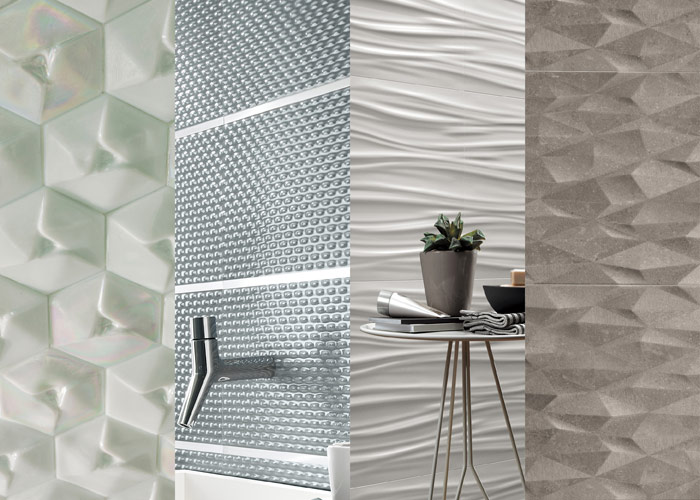
9. SUPERSIZE ME
Tiles continue to get bigger every year, bringing new design possibilities. Thin, large porcelain slabs—which can be used to cover surfaces including countertops and furnishings—are now available in sizes up to 5.25' x 10.5'.
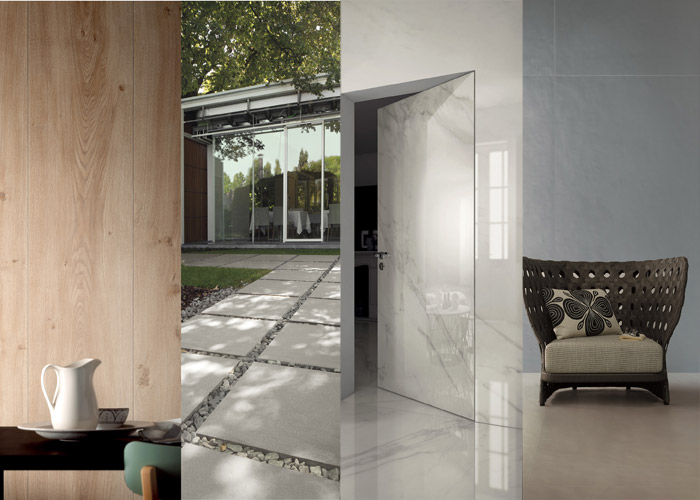
10. LIFE AQUATIC
This marine palette of greens and blues is perfect for a pop of color. From large-format and modern surface effects to more traditional shapes and motifs, these cool colors are bringing a coastal vibe to the interior.
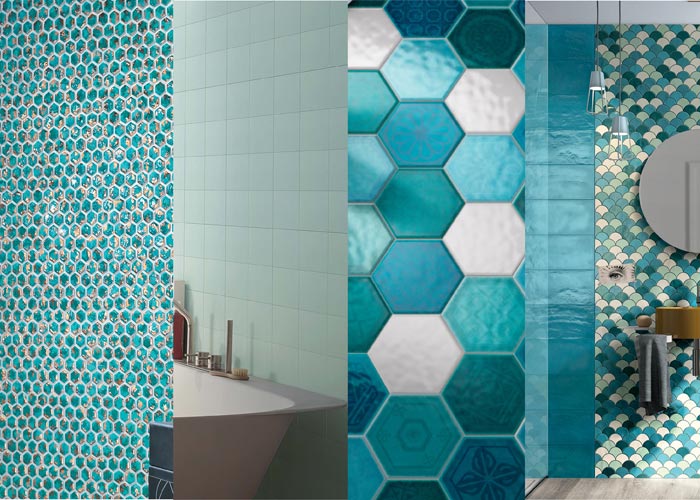
Related Stories
Windows and Doors | Mar 5, 2023
2022 North American Fenestration Standard released
The 2022 edition of AAMA/WDMA/CSA 101/I.S.2/A440, “North American Fenestration Standard/Specification for windows, doors, and skylights” (NAFS) has been published. The updated 2022 standard replaces the 2017 edition, part of a continued evolution of the standard to improve harmonization across North America, according to a news release.
AEC Innovators | Mar 3, 2023
Meet BD+C's 2023 AEC Innovators
More than ever, AEC firms and their suppliers are wedding innovation with corporate responsibility. How they are addressing climate change usually gets the headlines. But as the following articles in our AEC Innovators package chronicle, companies are attempting to make an impact as well on the integrity of their supply chains, the reduction of construction waste, and answering calls for more affordable housing and homeless shelters. As often as not, these companies are partnering with municipalities and nonprofit interest groups to help guide their production.
Modular Building | Mar 3, 2023
Pallet Shelter is fighting homelessness, one person and modular pod at a time
Everett, Wash.-based Pallet Inc. helped the City of Burlington, Vt., turn a municipal parking lot into an emergency shelter community, complete with 30 modular “sleeping cabins” for the homeless.
Codes | Mar 2, 2023
Biden Administration’s proposed building materials rules increase domestic requirements
The Biden Administration’s proposal on building materials rules used on federal construction and federally funded state and local buildings would significantly boost the made-in-America mandate. In the past, products could qualify as domestically made if at least 55% of the value of their components were from the U.S.
Industry Research | Mar 2, 2023
Watch: Findings from Gensler's latest workplace survey of 2,000 office workers
Gensler's Janet Pogue McLaurin discusses the findings in the firm's 2022 Workplace Survey, based on responses from more than 2,000 workers in 10 industry sectors.
AEC Innovators | Mar 2, 2023
Turner Construction extends its ESG commitment to thwarting forced labor in its supply chain
Turner Construction joins a growing AEC industry movement, inspired by the Design for Freedom initiative, to eliminate forced labor and child labor from the production and distribution of building products.
Multifamily Housing | Mar 1, 2023
Multifamily construction startup Cassette takes a different approach to modular building
Prefabricated modular design and construction have made notable inroads into such sectors as industrial, residential, hospitality and, more recently, office and healthcare. But Dafna Kaplan thinks that what’s held back the modular building industry from even greater market penetration has been suppliers’ insistence that they do everything: design, manufacture, logistics, land prep, assembly, even onsite construction. Kaplan is CEO and Founder of Cassette, a Los Angeles-based modular building startup.
Airports | Feb 28, 2023
Data visualization: $1 billion earmarked for 2023 airport construction projects
Ninety-nine airports across 47 states and two territories are set to share nearly $1 billion in funding in 2023 from the Federal Aviation Administration. The funding is aimed at help airports of all sizes meet growing air travel demand, with upgrades like larger security checkpoints and more reliable and faster baggage systems.
Seismic Design | Feb 27, 2023
Turkey earthquakes provide lessons for California
Two recent deadly earthquakes in Turkey and Syria offer lessons regarding construction practices and codes for California. Lax building standards were blamed for much of the devastation, including well over 35,000 dead and countless building collapses.
Sports and Recreational Facilities | Feb 27, 2023
New 20,000-seat soccer stadium will anchor neighborhood development in Indianapolis
A new 20,000-seat soccer stadium for United Soccer League’s Indy Eleven will be the centerpiece of a major neighborhood development in Indianapolis. The development will transform the southwest quadrant of downtown Indianapolis by adding more than 600 apartments, 205,000 sf of office space, 197,000 sf for retail space and restaurants, parking garages, a hotel, and public plazas with green space.


